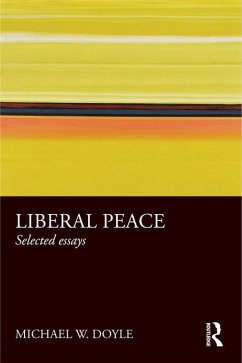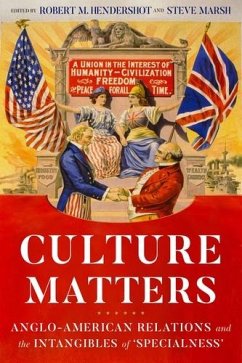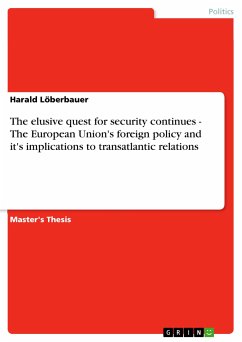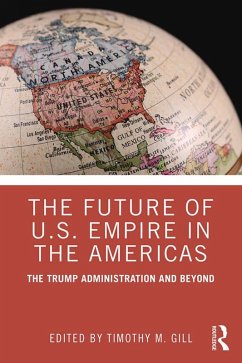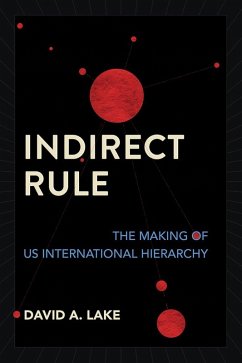
Indirect Rule (eBook, ePUB)
The Making of US International Hierarchy

PAYBACK Punkte
7 °P sammeln!
Indirect Rule examines how states indirectly exercise authority over others and how this mode of rule affects domestic and international politics.Indirect rule has long characterized interstate relationships and US foreign relations. A key mechanism of international hierarchy, indirect rule involves an allied group within a client state adopting policies preferred by a dominant state in exchange for the dominant state's support. Drawing on the history of US involvement in the Caribbean and Central America, Western Europe, and the Arab Middle East, David A. Lake shows that indirect rule is more...
Indirect Rule examines how states indirectly exercise authority over others and how this mode of rule affects domestic and international politics.
Indirect rule has long characterized interstate relationships and US foreign relations. A key mechanism of international hierarchy, indirect rule involves an allied group within a client state adopting policies preferred by a dominant state in exchange for the dominant state's support. Drawing on the history of US involvement in the Caribbean and Central America, Western Europe, and the Arab Middle East, David A. Lake shows that indirect rule is more likely to occur when the specific assets at risk are large and governance costs are low.
Lake's conceptualization of indirect rule sharpens our understanding of how the United States came to occupy the pinnacle of world power. Yet the consequences of indirect rule he documents-including anti-Americanism-reveal its shortcomings. As US efforts at democracy promotion and other forms of intervention abroad face declining support at home, Indirect Rule compels us to consider whether this method of rule ultimately advances US interests.
Indirect rule has long characterized interstate relationships and US foreign relations. A key mechanism of international hierarchy, indirect rule involves an allied group within a client state adopting policies preferred by a dominant state in exchange for the dominant state's support. Drawing on the history of US involvement in the Caribbean and Central America, Western Europe, and the Arab Middle East, David A. Lake shows that indirect rule is more likely to occur when the specific assets at risk are large and governance costs are low.
Lake's conceptualization of indirect rule sharpens our understanding of how the United States came to occupy the pinnacle of world power. Yet the consequences of indirect rule he documents-including anti-Americanism-reveal its shortcomings. As US efforts at democracy promotion and other forms of intervention abroad face declining support at home, Indirect Rule compels us to consider whether this method of rule ultimately advances US interests.
Dieser Download kann aus rechtlichen Gründen nur mit Rechnungsadresse in A, D ausgeliefert werden.






